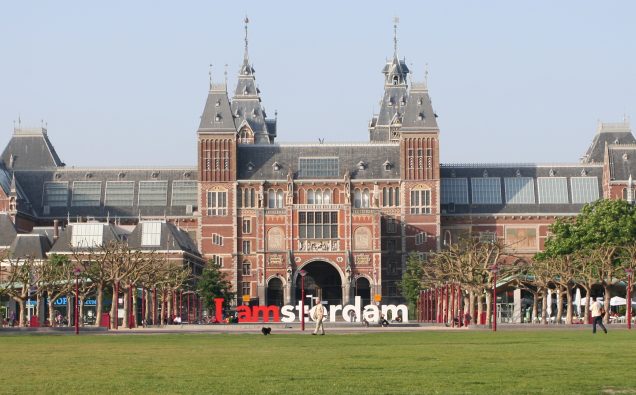
Rijksmuseum in Amsterdam Photo Massimo Catarinella via Wikimedia Commons
The victory of Dutch Prime Minister Mark Rutte in this week’s election was a moment of truth for the nation. And the Dutch grasped it. The Netherlands election pitched a progressive inclusive voice against exclusionary Geert Wilders, who campaigned with sloganeering to shut down mosques and kick out immigrants.
The election result was a source of relief and pride for the Dutch who have seen some of their their European neighbors give in to forces of parochialism, that want to turn the tide of global human integration. Even the British, who have for such a long time championed the cause of democracy, succumbed to the wave of populism that swept the island at the time of Brexit referendum. The 2016 U.S. election leading to the victory of President Donald Trump also pushed the issue of immigration to the front-burner.
The inability of the some governments to fix their lingering economic problems, and the sudden influx of hapless refugees from the Middle Eastern and African conflicts into Europe, and resurgence of the far right politicians through exploitation of the fear threaten to reverse decades of progress toward peaceful coexistence.
Some East European countries including the Czech Republic, Hungary and Poland have displayed humiliating attitude towards refugees in contravention of the the European Union spirit to share and care.
By the same token, oil-rich Arab and Middle Eastern countries- Saudi Arabia, Iran and the U.A.E. have failed miserably to address conflicts in their midst and have also slammed their doors shut on people displaced from their homes through no fault of their own.
The excessive nationalism that cost Europeans so heavily during the First and Second World Wars is a lesson too recent to forget. In today’s world trade and economy are much more interconnected and interdependent.
While there are some genuine complaints against globalism – like the loss of local jobs as in some American cities – such examples cannot be used as a pretext to reject moral and democratic values and respect for human rights. While terrorism concerns are real and every state has a right to protect its people, a slide back into authoritarian rules – as suggested by some European politicians – and compromise on moral foundations of civilization are not the answers.
National security and respect for civil rights are not mutually exclusive. A fine balance between ensuring national security and safeguarding liberties and civil rights must be the ultimate hallmark of societies founded on the principles of democracy, law and constitution.
Two major European powers France and Germany will also have elections this year with far right politicians espousing extreme ideas of divisions along “us and them” lines challenging the mainstream politicians.The Dutch election result will surely be a welcome news for enlightened forces in the two countries.
But the larger question facing the world is that of the way forward. The Western and Middle Eastern countries must shoulder their shares of responsibility towards a counterterrorism alliance that protects societies against terror and extremist ideologies – espoused by groups, political actors and states – and also respects dignity and rights of the people. Fighting extremism must not mean exclusivism – that is the message the Dutch election has emanated.












